“A person must shake someone’s hand three times while gazing intently into their eyes. That’s the key to memorizing their name with certainty. It is in this way that I’ve remembered the names of 5,000 people who have been to the Horse Hospital,” Jim Hollands told me. Hollands is an experimental filmmaker, musician and curator. In his childhood, he suffered through tough social situations and often lived on the street. He supported himself as a stone-worker and at times as a child prostitute, but his musical talent and fascination for film eventually led him to the radical cultural scene.
He became a curator and the coordinator of events at the Horse Hospital cultural center, where he remained for five years. Recently, his films Bear Circus and We Want the Boy Dead have become his most well-known works, along with his multi-layered work of hallucinogenic poetry, declamation and rhythm: Here. Hollands worked on these films, all and all, for over a decade. Here requires 3D glasses for viewing—not as some gimmick, but as good advice. Originally, viewers were encouraged to take acid as well, but after its premiere it immediately became clear that hallucinogens weren’t necessary. This is an example of dangerous versatility.
Hollands doesn’t boast about his knowledge or talent, but rather speaks of the wonderful works of others. He offers exhaustive analysis when discussing poetry, music, literature or radical cultural movements. I have seen his musical group Patricide several times. The group produces symphonic hip-hop using EBM and Grime. Yet it isn’t dance music; people generally sit in a trance as they listen to the music and watch the alluring projections above the musicians rolling around on the stage with their various instruments.
“With this kind of music the instruments and teamwork aren’t seen. Generally someone goes up to the podium with a lap-top. It has a totally different energy,” said Allon, the owner of a musical publishing house that offered to press some of Patricide’s albums.
Jim is a person with his own perspective. When he recently visited China for the first time people looked at him and said, “Jim! You’re Chinese!” And that’s not the only thing that we in Europe haven’t noticed about him yet.
Interview with Jim Hollands
The movie Here is a remake of an old movie, could you tell us about the movie, why you chose that original?
The way it all started? Well, I was really drunk on Special Brew which is a horrible high strength beer—disgusting stuff—and on ecstasy with a friend, Jim Beresford, and I said to him “wouldn’t it be a great idea if you could just erase what somebody had written?” And I picked a book randomly from a shelf, opened it and with a black marker went like that (makes erasing movement) and I’d picked out a book by this guy called Joe Orton and the page I’d opened it at was a play called “The Erpingham Camp,” and I erased one of the lines in "The Erpingham Camp," so I started by rewriting.
I deleted all of the original playwright’s lines and re-inserted my own dialogue into the play’s structure, and I called that Here. As I was doing that, the National Film Theatre showed a film version of this play, so I recorded the audience’s reaction to the film. During the process of rewriting, I got the job as curator of the Horse Hospital and, through connections there, I managed to obtain a copy of the film. So the whole process started by being drunk and on ecstasy...
So the film itself is an hour long. And the original film is from a book?
Yeah, it was originally by Joe Orton, the gay British playwright.
Orton was the enfant terrible of the 60s’ “angry young men.” He’s probably best known now for being bludgeoned to death with a hammer by his lover. His published diaries are very sexually explicit, so his life has been remembered much more than his work. I’d reiterate that the sole reason for doing this project was a random act, but from that, I’ve looked at different meanings of what I’m doing and how it pans out. Orton’s work isn’t remembered so much; it’s been castrated and when his work is displayed in theatres, it’s very reactionary, it’s always set in the 60s, it’s always given a particular time frame—which isn’t necessarily the case. He’s been linked with the 60s forevermore. By my taking his work and reworking it, it places it back within the experimental tradition from which he came.
So the movie is based on the play he wrote, what was the original’s plot?
The story is a reworking of Euripedes’ "Bacchae." Orton’s version
is set in a Butlins holiday camp, where working class people went on holiday in Britain. The head of the holiday camp employs a younger man as head of entertainment after the original entertainment officer dies. And this younger guy, Riley, who’s not very experienced, ends up causing chaos. There’s a revolution within the camp, and the head man, Erpingham, is killed at the end. It’s a film about the death of the father, like most films are.
Death of the father? Like the father of this camp?
The father in general.
He presents himself as the father of the camp? I’m asking because we don’t know the original, and you can only catch glimpses of it, of what it could be about.
The original’s not important at all, it’s like a back story, but it’s not important to me at all. The important part was erasing the original story as much as possible in order to be able to rewrite it. It’s a desire to try and make something new from that which you already have. I’d like to think that as a society, as humans, we can take what we’ve got and rework it into something that might work, because this obviously doesn’t.
And you wanted to bring this meaning into your remake?
Oh yeah. Rewriting was a long process because of the way I was working. I was using found sentences—everything anyone spoke to me; or when I saw or heard a sentence in a film, I wrote it down. So I had a database of maybe 7,000 sentences, which I then rearranged to try and extract forms of meaning from, databases of sentences around similar themes. If a particular word came up on some of them, I’d put them into frameworks and then reinsert them back into the text, the struggle to find new meaning was long and complex and quite painful. I wouldn’t recommend anyone to go through that.
But it’s not entertainment. Don’t you want the audience to pay attention? You’re not recommending getting through?
I’m not recommending anyone go through the same process I went through. Watching the film, you could treat it as entertainment.
It’s a visceral experience, like an action movie, and you could also treat it in the same way you can treat any work of experimental literature as entertainment—the film is a work of experimental literature on video. I’d hope people would treat it in the way you would treat any experimental narrative; you can take stuff out if you want, you can read poetry for its beauty, or you can try and find meaning in it.
Because with Here you can watch and listen to it as well as read it, you can take more out of it than something that was printed in a book. It’s trying to get through to the point where narrative actually hits a synaesthetic medium, and where film is a synaesthetic medium in itself, and I don’t think you can do that without literature, without words, without reading.
When you’re watching the movie you have to go through many layers. There’s a visual layer, which is the original movie, then there’s a second visual layer which is your remake, or what we consider the effects, there’s a third level, subtitles, and then there’s a fourth layer, the voices...
Which are the voices of the subtitles.
But the subtitles and the voices are not the same...
Not always, sometimes they come back and meet each other and drift apart again. And there’s music/sound on top of that.
So there are five layers?
Yeah, it’s just like any other DVD. They have effects, sound and subtitles; in films normally everything is developed to create a cohesive whole, and with this I’m altering that way of operating. I’m using those layers as planes, rather than as glue.
Could you compare your work with some books you like?
Oh no! I couldn’t
It’s not easy to watch. You have to watch it maybe three times to get in. In history, there’s for instance Nerval, or the symbolists, and so many people say they’ve read them while only getting three pages in, and that could also be the fate of your movie, because the world is about entertainment.
I think it’s easier to watch something than to read it, which is why I wouldn’t want to do it just as text. I think you have to use the mediums that are around, you have to use modern media. And if Nerval was around now I’m sure he’d be sitting at a computer in a dusty room, surrounded by lobsters and iPods. They were modernists, and Nerval was a master. He was the first person to use the phrase "Je suis l’autre," which Rimbaud later took on board as “Je suis un autre," but what Nerval said was “Je suis l’autre” which means “I am THE other.” He was the first person to identify himself with the object rather than the subject. He’s certainly a huge influence on my work. I work with a copy of “Aurelia" and picture of Omar from The Wire in front of me on my desk.
In terms of experimental literature, the processes that I was finding a lineage from had less to do with Nerval, although obviously he’s a key figure. You have Dada work, Lettriste work and at the same time you have a British writer called Ronald Firbank. For me, Ronald Firbank was the first writer who separated the idea of writing into ideas of snapshots, of sentences being captured in isolation. He wrote on postcards, and he’d do a large collection of postcards and then arrange them—often in the British Library—into different orders, and work out what was the best order for him to write with. When you read his work, it’s like walking through a room hearing glimpses of conversations, and you then find that idea of taking snapshots of sentences and placing them in different places. You find that with Tristan Tzara, where he’s taking words out of hats, which makes it much more random. That randomness was then accelerated and propagated by Burroughs, although it was Bryon Gysin’s technique. They placed it very much more into the idea of the random. Orton was very influenced by Firbank, and I went back to the idea of the non-random form of cut-up work because the random act had already happened by my choosing that book to work on. I didn’t want to place any more random acts on it, because it’s very hard to extract meaning at that point. You get the same stuff happening over and over. It’s like having a Tarot reading, which wasn’t interesting to me for this.
With your work, you’ve mentioned the poor conditions from which you came...
My family was OK, it’s only me that’s crap with money. I came from a middle-class background—my mum was working class, my dad was an immigrant, they both became journalists and worked hard—but it was strange one. My parents were both dead by the time I was 19, so I was on my own, and me and money don’t get on very well. My poverty is my own fault; it doesn’t come from anywhere else. I always chose having my own time over having money, and you have to make the best of the conditions you’ve got. Especially if you’re working in film or video, it’s an expensive medium. With Sweet (Hollands’ first film) we ended up stealing cars, sucking off blokes to get cameras, and doing what you have to in order to make something that would get you out of that situation. With Here, there’s an interest in pushing domestic equipment to see how much you can do with it, and I didn’t know how else I was going to make films if it wasn’t remaking what already exists. I mean where was that money going to come from? I doubt very much if I’d get grants due to the nature of my work; I don’t think they really understand what I’m doing. I don’t know about now, we’ll see.
...and your gay activist background.
With regards to the gay community, when I was 18 and 19, I was involved with a British form of ACT-UP, which was the AIDS Coalition to Unleash Power, to basically get the right for people who were HIV positive to garner money for medicine, the right to be able to experiment on yourself, the right to get free drugs if you needed them—all this sort of stuff which didn’t necessarily apply in Britain because we’ve got a national health system. I went to New York to see the New York branch in 1987, and I was just blown away. I’d never seen gay people be angry before, and these guys and drag queens were like pit-bulls. On marches they were literally spitting in cops’ faces. It was mind-blowing. And their art campaign was genius: “Silence = Death.”
Generally within homosexual literature, art and culture, there’s this objectification of the young male. It comes from the Greek pederast ideal of the older man idealizing the younger male. And coming back to Gerard de Nerval, for Here, I took the idea that I am the Boy, I am The Other; I am that thing that doesn’t have a voice. The Boy has been given the idea of form as an object, idolized in statues, in films, in literature, but it never speaks. It’s the voice of the older man speaking for the boy and that’s generally from the writer’s point of view. Anyone from Alan Hollinghurst, to Dennis Cooper—it’s always the voice of the older man.
Here is the Voice of The Boy, it’s the Boy fighting back and saying no, we’re not going to take this objectification and we’re not going to take being silenced anymore. It’s time to fight back. It’s not really a voice that’s often given a lot of weight in culture, and when I was writing it, when I was 27 -29, that was kind of the last time I think I could have possibly said that, and remember all those voices. I’m too old to speak from that position anymore, so I’m glad I got it recorded when I did, because I think it’s an important thing to say.
When you’re talking about the culture now, could you tell me what you like about the creations around you, what is crap and what is merely “sick”?
What’s wrong with “sick” things? (laughs)
Once you told me you wanted to smash Damien Hirst’s Skull With Diamonds.
Well, it’s the only logical reaction to somebody doing that. What would you want to do, own it? Look at it? You wouldn’t want to do either of them, so you might as well smash it. Smashing it was Aryan Darzi’s idea though, I wanted to kidnap it and then send it back diamond-by-diamond for ransom. I want to kidnap Kraftwerk’s robots as well. Cut off a hand and demand a ransom.
The thing is it could be an art act...
That’s the reason why I wouldn’t do it, but I’d certainly encourage other people to do it. I love people who react against art like that! Like Jubal Brown walking into that gallery and puking over that Mondrian—nice one Jubal! It’s fantastic for people to do that. Not for me, but I’d certainly encourage it. If someone’s given a platform to say something, and they’re saying nothing, and then if they’re producing work: smash it. Take them out, shoot them. That would be an art act, shoot the lot of them. Shoot Damien Hirst.
You’re a musician too. How is London for music at the moment?
London’s great. We’ve produced four new genres of music over the past 15 years: jungle/drum ‘n bass, garage & 2-step, grime, and dubstep. Name another city that’s done that. Jamaica’s doing dancehall, America’s still doing hip-hop. We’ve done four different
types of music in that time. Catch up.
I live in the borough of Brent in London, and Brent’s the most multicultural place in Europe. You’ve got an 85 percent chance, if you’re walking down the street, of the person that passes you first being from a completely different country, ethnicity and speaking a different language to you. Kids in London all speak a form of patois, and that’s been going on about 20 years now. That’s in order to level borders of nationality. All the kids speak to each other the same, if you heard a kid on the phone you wouldn’t be able to tell if they were black, Pakistani, Chinese or white. They all speak the same, and that’s really important. Culturally it’s been totally blinding, the music is just unbelievable. I’m much more influenced by music than anything else. Everyone should listen to Rinse FM, especially the Newham Generals shows on Sundays. And that’s all fed into Here. I was 11 and 12 when (Malcolm McLaren’s) "Buffalo Gals" and (Grandmaster Flash and The Furious Five’s) "The Message" came out, so my reference points have been hip-hop, along with some other stuff you pick up on the way. But there’s been a constant background hum of hip-hop. Seeing scratching for the first time, seeing Keith Haring’s work—these were my first introductions to art, and I think you can see sample culture as being really influential in my work, albeit from an experimental literature/noise music/homosexuality
angle, but it’s all from a point of hip-hop culture.
But with your band Patricide you’re doing something different to hip-hop?
Yeah, but I think it’s still hip-hop.
Really?
Definitely. From a Zulu Nation point of view, if you believe in the central tenets of hip-hop, then you can call it hip-hop. I mean we play a lot of different things, there’s hip-hop beats, grime beats, garage beats, dubstep beats, house beats, but it’s still beats and vocals. Patricide was an experiment for me to play contemporary beat driven music, and then free jazz-wise over the top. But that free jazz work is done with computers and synthesizers as opposed to saxophones and trombones.
How did you get together?
It was from the Horse Hospital Radio show. I used to do a show on Resonance FM, and a lot of it was down to a guy called Orrin Hare, who was really into the radio show and was pretty much responsible for introducing me to everyone that came on that show. Then I ducked out after four years, ‘cos I was bored and I think we’d reached a point on the show where that was as far as we could go with it. The other four people in Patricide, Aryan Darzi, Ze Soundtexture, GazCloud and CJ Johnson, we just kind of ended up practicing together after the show ended. It’s still the same idea except we’re making our own beats now as opposed to using other people’s.
If you’re at a Patricide concert, more so if you have seen a few of their concerts, you realize there are songs, but it mainly looks like improvisation.
Yeah, it’s improvisation around themes, like any jazz. We create our own beats and we practice over them to the point where there are recurrent themes. I wouldn’t want it any other way, I don’t see the point in not improvising, and why improvisation shouldn’t be fun, why you shouldn’t dance to it, it doesn’t have to be these outmoded AMM ideas of what improvisation should be, which tend to be very dull and white, that whole format has been taken from something brilliant to something very dry. We’re just trying to funk it up a bit.
So how can we get hold of your work?
It’ll be touring all over but if you want to get hold of the work, people can just email me. There’s a promo first edition of Here that’s going out, and there’s a PayPal address if people want to contribute to the “cause,” or to my work. (laughs) Similarly with the music. My e-mail is jim@chantdownbabylon.com.
So are you planning anything else at the moment?
No, not really—I’m touring with this one. But I got permission to do an adaptation of one of RM Vaughan’s books as a screenplay, and the idea is that I’m shunting that around as I’m touring with Here. It would be nice to actually do a film with money next.
So what’s your role there, are you writing for someone?
No, I’d like to direct it.
It would be a movie with actors and stuff?
Yeah, I mean Sweet is a movie with actors and stuff, but I didn’t particularly like that experience. In a lot of ways Here was a reaction against the director as a concept, against controlling people in that way. I think having done Here I’ve found ways in which you could possibly get round being Hitler, which is what directors are, and I don’t think that does anyone any good. I’d like to have the room with a bigger budget, but we’ll see. I’ll do it without money if I have to, I always have done before.
Maybe it’s half way to curating, telling artists what to do? Artists who switch to curating so they can tell other artists what to do?
Yeah, it’s all a bit dogmatic. When I’m curating I see it as an advisory role. It’s just a power trip... the quote at the beginning of Here is from Robert Gluck—it was something he said at a reading he gave. The quote is: “As an anarchist, one might say, power should be given away, passed around, turned inside out.” Telling people what to do isn’t giving power away. It’s taking it for yourself. The idea that an artist can economically share a work by giving money to someone to make work that they can then call theirs, I don’t think that’s sharing at all. I think that’s just perpetuating fucking horrible structures. So I went to college and did a foundation course in Computer Art at Tower Hamlets College, then I was working and then I went to Thames Valley University to do an MA. Most of it was learned from a great guy called Andrew Greaves at Tower Hamlets College, and he showed me how to use a computer. So it was four years to actually do the digital work, make the whole thing starting from scratch. As a whole it was put together over 9 months, but learning all that took four years.
And the China experience? You went to China and you said you found yourself?
My dad was part Chinese. He was brought up in Hong Kong, and him and my mum died when I was relatively young. A lot of my memories of my childhood are quite blurred, and I don’t have parents to corroborate them. In going to China I really recognized myself in other people. People looked like me, I don’t get that in the UK. I was brought up with these references, but I wasn’t sure that the references of my memories were real, and going to China with The Doc I saw that they were real. I wish someone had taken me there earlier, I think my brain would have developed in a different way. I never thought any of that roots stuff was important, but I now I think it is. It’s a shame. It would be nice to say it doesn’t matter where you’re from, but I think it does. I’d recommend it, you should go! The food’s amazing, best food in the world. Aside from Jamaica. If I went to Jamaica I’d come back 20 stone. The plane would crash. Into Big Ben.
It seems to me that Hollands is of the apocalyptic school of film-makers, and Here becomes a revelation of the absolute, collapsing the infinite stresses of identity into the immediate. That is its name, after all: it becomes a locus for everything in the queer experience of identity-shaping without attempting to reduce it to a single voice. I found it utterly heart-breaking and entirely moving.
from notes on Jim Holland's movie Here by James Butler.
Full version on http://jimhollands.blogspot.com/







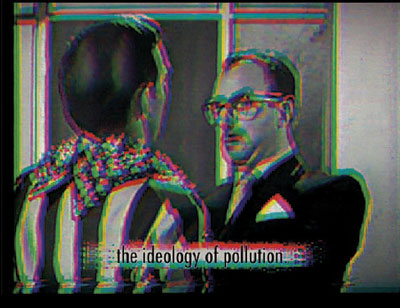
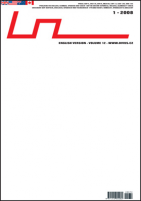









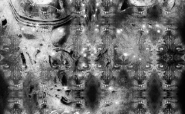
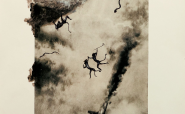
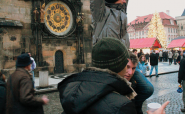
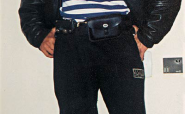







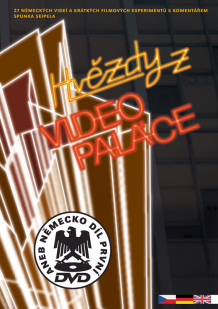




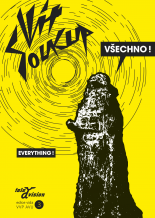
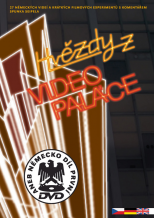
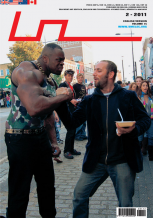
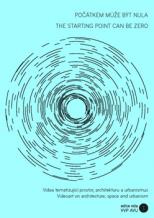


 We Are Rising National Gallery For You! Go to Kyjov by Krásná Lípa no.37.
We Are Rising National Gallery For You! Go to Kyjov by Krásná Lípa no.37.
Comments
There are currently no comments.Add new comment